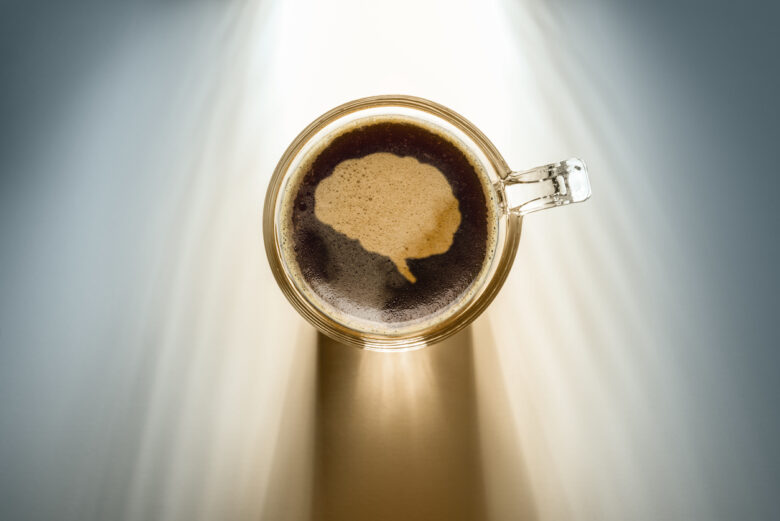Coffee is one of the most popular drinks in the world and is known for its rich taste and stimulating properties. In addition to taste, coffee also has a significant impact on mental health, changing mood, cognitive function and overall health. This article explores the various effects of coffee on mental health, including its benefits and potential problems.
Historical Perspective:
The history of coffee is steeped in mystery and legend, dating back to ancient Ethiopia. Coffee cultivation expanded throughout the Arabian Peninsula and beyond, increasing its reputation as a stimulating elixir. Coffee was once thought to have therapeutic properties, such as the ability to increase mental acuity and treat a variety of ailments.
Positive Effects of Coffee on Mental Health:
Improved Mood and Alertness
Coffee’s best-known benefit is its ability to improve mood and alertness. This is mainly due to the caffeine content, which stimulates the central nervous system. Caffeine inhibits adenosine, a neurotransmitter that promotes sleep, resulting in increased alertness and a happier mood.
Reduce the Risk of Depression
Several studies have shown that moderate coffee consumption can reduce the risk of depression. For example, a study published in the Archives of Internal Medicine found that women who drank two to three cups of coffee per day were 15 percent less likely to develop depression than those who drank one cup or less per week.
Improved Cognitive Function
The effects of caffeine on the brain have been thoroughly documented. It improves memory, mood, alertness, energy levels, reaction speed, and overall cognitive performance. These effects are thought to be related to caffeine’s ability to block the inhibitory neurotransmitter adenosine, thereby increasing neuronal firing in the brain.
The Negative Impact of Coffee on Mental Health:
Stretched
While drinking coffee in moderation can improve your mood, drinking too much can cause anxiety and restlessness. Caffeine promotes the release of adrenaline, which increases the heart rate and creates a feeling of nervousness.
Sleep Disorder
The stimulant properties of coffee can disrupt sleep patterns, making it difficult to fall asleep and stay asleep. Caffeine has a half-life of about 5–6 hours, so even taking it in the afternoon can affect your sleep at night.
Mental Disorders can Worsen:
People with certain mental health conditions, such as anxiety disorders, may be particularly sensitive to the effects of caffeine. High doses of caffeine can worsen anxiety and worsen symptoms in people who are already anxious.
Effects of Caffeine on Stress Levels:
Caffeine is known to increase the release of stress hormones such as cortisol. Although moderate amounts of caffeine may have health benefits, excessive consumption can lead to an overactive stress response, exacerbating feelings of tension and anxiety.
Impact of Coffee on Social and Mental Health:
In addition to its physiological effects, coffee also has significant effects on social relationships and psychological well-being. Coffee breaks are often seen as a time to relax and socialize, whether it’s chatting with friends over a cup of coffee or enjoying a quiet moment alone.
Coffee Addiction and Withdrawal:
Regular coffee intake can lead to dependence, and stopping suddenly can lead to withdrawal symptoms such as headaches, irritability, and fatigue. Gradually reducing your coffee intake can help control these symptoms and reduce caffeine dependence.
Individual Differences in Coffee Effects:
Genetic variables influence how individuals metabolize caffeine, leading to differences in its effects. Some people may be more sensitive to the effects of caffeine, while others may metabolize it quickly and without negative consequences.
Tips for Healthy Coffee Consumption:
Drinking coffee in moderation is crucial. The usual recommendation is to limit caffeine intake to about 400 milligrams per day, which is roughly the equivalent of four 8-ounce cups of brewed coffee. It is also important to monitor your body’s response to coffee and adjust your intake accordingly.
Conclusion:
Coffee has complex effects on mental health and can have beneficial or harmful effects, depending on the situation. Although moderate coffee consumption can improve mood and cognitive performance, excessive consumption can have negative consequences such as anxiety and sleep disruption. To maximize the benefits of coffee and minimize the disadvantages, pay attention to your body’s signals and drink in moderation.
FAQs:
1. Is coffee addictive?
Although coffee can cause dependence, it is not as addictive as nicotine or opioids. Most people can drink coffee in moderation without making it a habit.
2. Can coffee help you focus?
Yes, caffeine can improve concentration by inhibiting adenosine receptors in the brain. However, excessive coffee consumption can cause stress and anxiety, which can affect concentration.
3. Does drinking coffee have long-term effects on mental health?
The long-term effects of coffee on mental health are currently being researched. Although most people consider coffee safe when consumed in moderation, excessive consumption can have long-term harmful effects on mental health.
4. Are there alternatives to coffee to increase mental alertness?
Yes, there are several options that can help increase mental alertness, including green tea, matcha, and herbal drinks. These drinks contain moderate amounts of caffeine and provide additional health benefits.
5. Does coffee worsen anxiety?
Drinking large amounts of coffee can worsen anxiety symptoms in some people, especially those who are sensitive to caffeine. It is recommended that you keep track of your caffeine intake and how it affects your anxiety levels.



